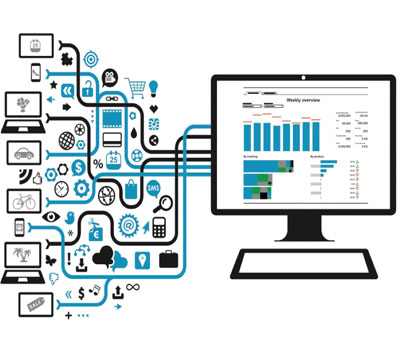
Many advertisers still have doubts regarding what performance marketing actually is. More than likely, this is due to the fact that it’s a relatively new term that encompasses all marketing methodologies.
Some people confuse performance marketing with affiliate marketing. Though they share some similar concepts, the latter is actually a tool and a technique available to marketers so that they can develop their work in performance marketing.
These campaigns are launched in a digital environment (increasingly more so on mobile platforms as well) in order to attain measurable results. These campaigns, however, are different than branding or brand awareness campaigns. In order to track user actions, one can use cookies, universal pixels or conversion pixels.
Advantages of Performance Marketing:
• Ease of ROI measurement. The classic CPM and CPC models offer a cost linked to results; however, their actual relation to sales is much more vague. In the case of CPM, we can only know the number of times a given ad has been shown. The downside, however, is that we can’t ensure that a real person saw it. In the case of CPC, we can know who’s been on our site after a click, but, this KPI doesn’t tell us what happens next: did the person leave the page without reading or did they continue to pass through the advertising funnel? Nevertheless, by tracking these actions with cookies or pixels, you can know what each user actually does on your website or landing page.
• Conversion-based goals. These goals can be anything from leads to sales and allow us to know what benefits have come from the strategy as a whole. A couple of examples are: 1,000 sales conversions with an average value of Rs.50, or 5,000 download from a form with a sales possibility of 20%. In this way we will be able to honestly assess our ROI.
• Greater optimization. Improving measurement helps us to be able to constantly optimize campaigns. If we know certain actions are providing better results, we can give these actions a boost by adjusting the budget accordingly. At the same time, we can cast aside any actions which are not contributing to making conversions. Additionally, since technology allows us to measure results in real time, we can establish continuous controls that either refine campaigns or stops them. In regards to brand advertising, results are an ongoing improvement process.
• Opportunity costs are eliminated. This means that advertisers should no longer invest in campaigns without knowing what the results will be. With performance marketing, risk is minimal and allows you to estimate how much a campaign will cost for each campaign.
• Efficient management of the digital advertising budget.
• Wide array of channels. Performance marketing strategies show their potential through a wide variety of online channels: Social Ads, email marketing, content marketing and/or display marketing.
• Conversion-based goals. These goals can be anything from leads to sales and allow us to know what benefits have come from the strategy as a whole. A couple of examples are: 1,000 sales conversions with an average value of Rs.50, or 5,000 download from a form with a sales possibility of 20%. In this way we will be able to honestly assess our ROI.
• Greater optimization. Improving measurement helps us to be able to constantly optimize campaigns. If we know certain actions are providing better results, we can give these actions a boost by adjusting the budget accordingly. At the same time, we can cast aside any actions which are not contributing to making conversions. Additionally, since technology allows us to measure results in real time, we can establish continuous controls that either refine campaigns or stops them. In regards to brand advertising, results are an ongoing improvement process.
• Opportunity costs are eliminated. This means that advertisers should no longer invest in campaigns without knowing what the results will be. With performance marketing, risk is minimal and allows you to estimate how much a campaign will cost for each campaign.
• Efficient management of the digital advertising budget.
• Wide array of channels. Performance marketing strategies show their potential through a wide variety of online channels: Social Ads, email marketing, content marketing and/or display marketing.

